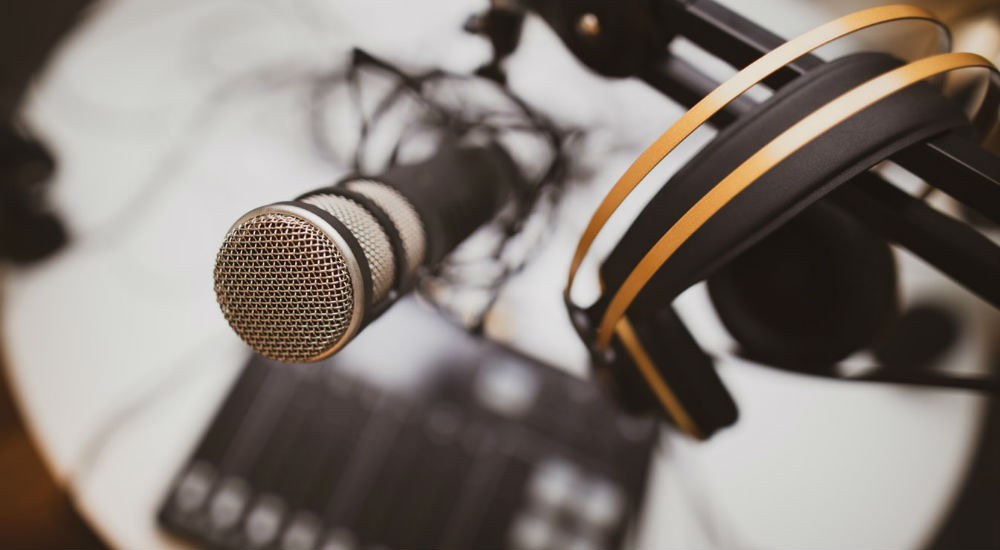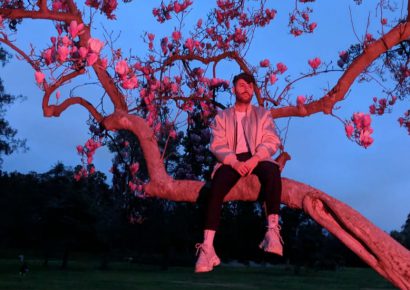Podcasts are everywhere at the moment, yet not much is said about the technical aspects of what goes into making a successful podcast. How important is it for aspiring podcasters to have a solid understanding of the technical/practical aspects of their craft and how does this translate to better content?
The truth of it is that anyone can make a podcast as long as you have a microphone and some editing software. And whilst we are somewhat forgiving of not-so-great audio quality in podcasts as long as the content is amazing, I think that now there are so many big-budget podcasts out there the standard is definitely getting higher.
It’s so important to understand the technical side of audio production. You wouldn’t try to make a feature film without understanding cinematography and how to use camera equipment and the same should be said for podcasting. Part of our craft is storytelling and you need to understand how to compel an audience to keep listening. Without a solid understanding of this, you’ll really struggle to make content that’s worth listening to.
A lot of people are probably not aware of the amount of post-production and editing involved in producing a podcast. What kind of editing and post skills is a student likely to pick up in the Podcasting Fundamentals short course at AFTRS and how useful are these to the aspiring podcaster?
Yes that’s one of the biggest misconceptions with podcasting… people always underestimate how long it takes to make one episode! In our course you will learn everything you need to make your own podcast. We cover the technical side of it with recording, editing, signal processing, how to host your podcast etc. but we also teach our students how to conduct interviews and get the most out of their guests and most importantly how to tell a story. Also featured at the end of the course is how to grow an audience and market yourself and your podcast brand which is half the battle really…
Your CV is about as legit as they come in the Australian broadcast space, having worked with a veritable who’s who in Australian radio (Kyle and Jackie O, ABC). How did you get your start and have have you been able to maintain and sustain your trajectory in what is such a dynamic and competitive industry?
I kind of fell into radio actually. My initial career goal was to be a print journalist but things happen and change your life path, and that’s exactly what happened to me. I met someone who was an audio producer and I visited their studio and saw a promo laid out in Pro Tools and it was literally one of those mind-blowing moments for me. I had never even imagined how radio promos were made and I was immediately fascinated and wanted to be a part of this world.
I found out early on in my radio career that being a female audio producer set me apart from the boys club that it was. Whilst I may stand out in that regard, my work has always had to speak for itself. You’re only as good as your last piece of production and so I’ve always just strived to produce the highest quality work possible.
As an Audio Creative, you have been involved in some pretty major re-brands (ABC Sydney, KIIS 1065). How important is it for aspiring podcasters to find their own voice as a means of building a ‘brand’?
Well once you create a podcast, you really should consider it as a brand. You need to promote that brand or nobody will even know that your podcast exists. For many, podcasts have become a marketing tool to help promote an existing brand or business anyway.
Podcasters must find their own voice because being a copycat makes it really hard to succeed in this super competitive podcast market. Find your niche and your point of difference and build that brand to make it something that we all want to consume. We make podcasts for people to listen to so we need to get it into as many ears as possible!
What would be the one piece of advice you would give to aspiring podcasters, looking to make their mark in the content-creation space?
Find something that you’re genuinely interested and passionate about because making a podcast involves a lot of research, reading and talking about that topic and if you’re not authentic in your delivery, your audience will see right through it. Also, take some time to learn how to tell a compelling story…learn how to record and edit properly so that you’re making the best possible podcast you can.
Find out more about the range of courses offered by AFTRS here.

